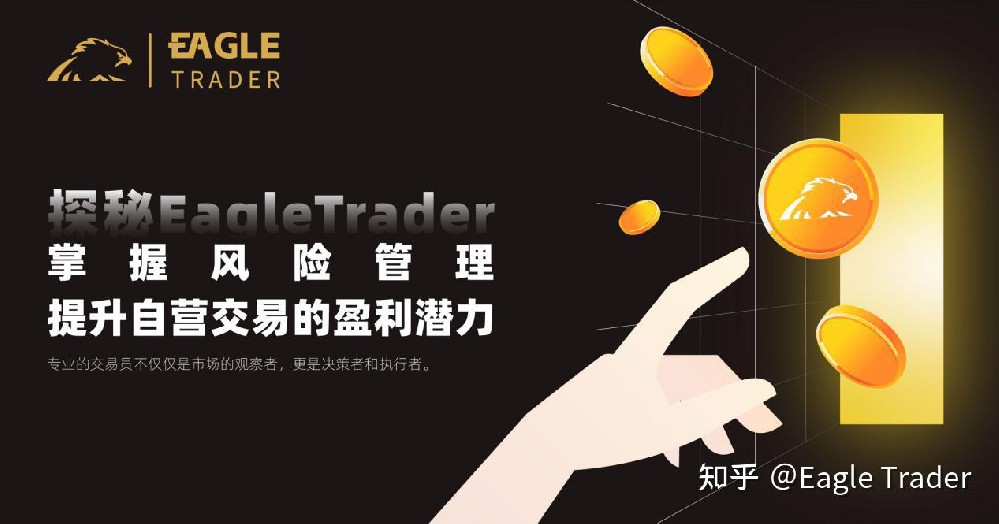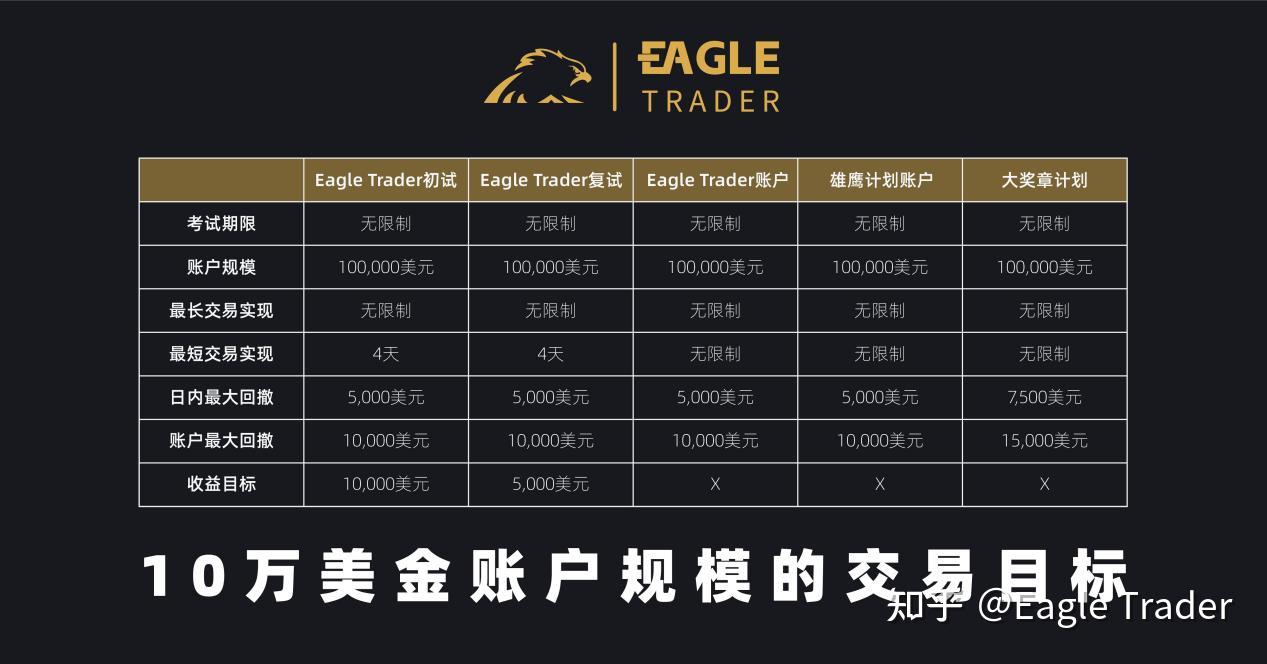Discover Eagle Trader: Master risk management and enhance the profit potential of self-operated transactions
- 2025年5月27日
- Posted by: Eagletrader
- Category: News
Professional traders are not only observers of the market, but also decision makers and executors. In this market full of uncertainty and risks, how to ensure the stability and profitability of transactions through reasonable risk management has become a problem that every trader must face.
Eagle Trader is a professional self-operated trading examination platform and is well aware of the importance of risk management. Here, traders can not only obtain financial support, but also accurately master risk control skills through simulated trading, thereby steadily improving trading levels in actual operations. This article will give you an in-depth understanding of why risk management is so critical in proprietary trading!

Owned trading exam model
Eagle Trader’s examination process sets four key evaluation indicators: maximum loss, maximum intraday loss, profit target and trading cycle. The exam is divided into two stages: preliminary examination and re-examination. The specific requirements are as follows:
First examination:The maximum daily loss cannot exceed 5%, the maximum account loss cannot exceed 10%, the profit target requires 10%, the minimum trading day is 4 days, and the longest trading cycle is unlimited.
Re-examination:The maximum daily loss cannot exceed 5%, the maximum account loss cannot exceed 10%, the profit target requires 5%, the minimum trading days are 4 days, and the maximum trading cycle is unlimited.
For example, taking the $100,000 account size as an example, the following is the trading target of Eagle Trader:

Most proprietary trading platforms will set up similar evaluation processes, traders are required to pass the assessment before they can prove that they have the ability to make continuous profits and obtain financial support. Eagle
Trader is also another overseas proprietary trading platform. Loss restrictions and profit targets are usually core assessment conditions, which shows the importance of risk management capabilities in proprietary trading.
Why does the self-operated trading exam pay special attention to risk management skills?
In the self-operated trading exam, risk management is one of the core factors for whether traders can make long-term profits. Although exams are usually conducted in simulated environments, this does not mean that traders can ignore risk management. Here are the reasons why risk management is an important factor:
1. Limit losses from a single transaction
No matter what the market conditions are, all traders will encounter moments of wrong judgment or market reversal. By setting stop loss and controlling the position size of each transaction, traders can stop losses in a timely manner when the losses reach the bearable range, preventing a single loss from having a catastrophic impact on the overall account. Without effective risk management, traders may lose most or even all their funds due to temporary misjudgment.
2. Maintaining the sustainability of funds
Trading is a long-term game, and successful traders know how to maintain stable profit levels in an uncertain market environment. Through reasonable fund management, traders can ensure that they maintain the healthy state of their accounts during multiple transactions and avoid the inability to continue trading due to a large loss. Just as “survival is the first step to success,” risk management ensures that traders can continue to participate in the market over the long term.
3. Reduce emotional interference and maintain rational decision-making
Fluctuations in the market often trigger emotional fluctuations among traders. Excessive panic or greed can lead to impulsive decision making, which can affect the overall effectiveness of the transaction. Good risk management can help traders treat every transaction rationally and avoid overreacting due to emotional fluctuations. By setting a reasonable risk-to-reward ratio, traders can make more objective trading decisions without being influenced by emotions.
4. Improving the strategic and refined nature of transactions
Risk management is not just about controlling losses, it is also a strategic way of thinking. Traders can be meticulous in every transaction through analysis of the market environment, assessment of risks and appropriate position management. Such strategic thinking helps traders make more scientific and rational decisions, thereby improving trading success rates.
5. Increase the possibility of long-term stable profits
The trading market is changing rapidly, and successful traders know how to balance the risks and returns in each transaction. Good risk management helps stabilityThe trader’s profit and loss fluctuations allow them to achieve continuous profits in long-term trading rather than relying on a single lucky transaction. Robust risk management is the key to achieving long-term profits.
Owned trading is a challenge that requires traders to have a high degree of professionalism and psychological qualities, and risk management is undoubtedly at its core. Eagle
Trader provides a mock exam platform, allowing traders to continuously hone their risk management skills in the environment of real market fluctuations without worrying about capital losses.
In the mock exam process, traders can not only improve market analysis capabilities, but also strengthen risk control to ensure that they make more stable decisions when facing actual transactions. In this way, traders can lay a solid foundation for themselves. Eagle
Trader is committed to incubating top global traders to help you unlock trading potential and reach a higher peak of success!
